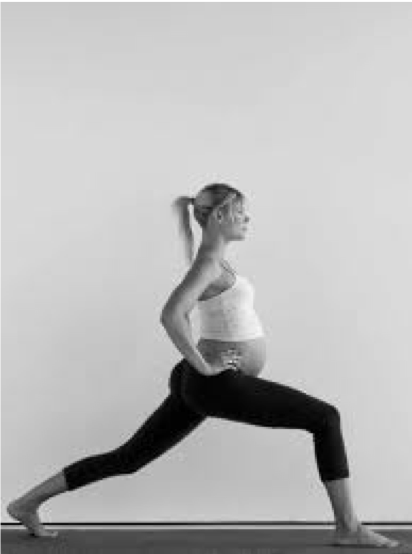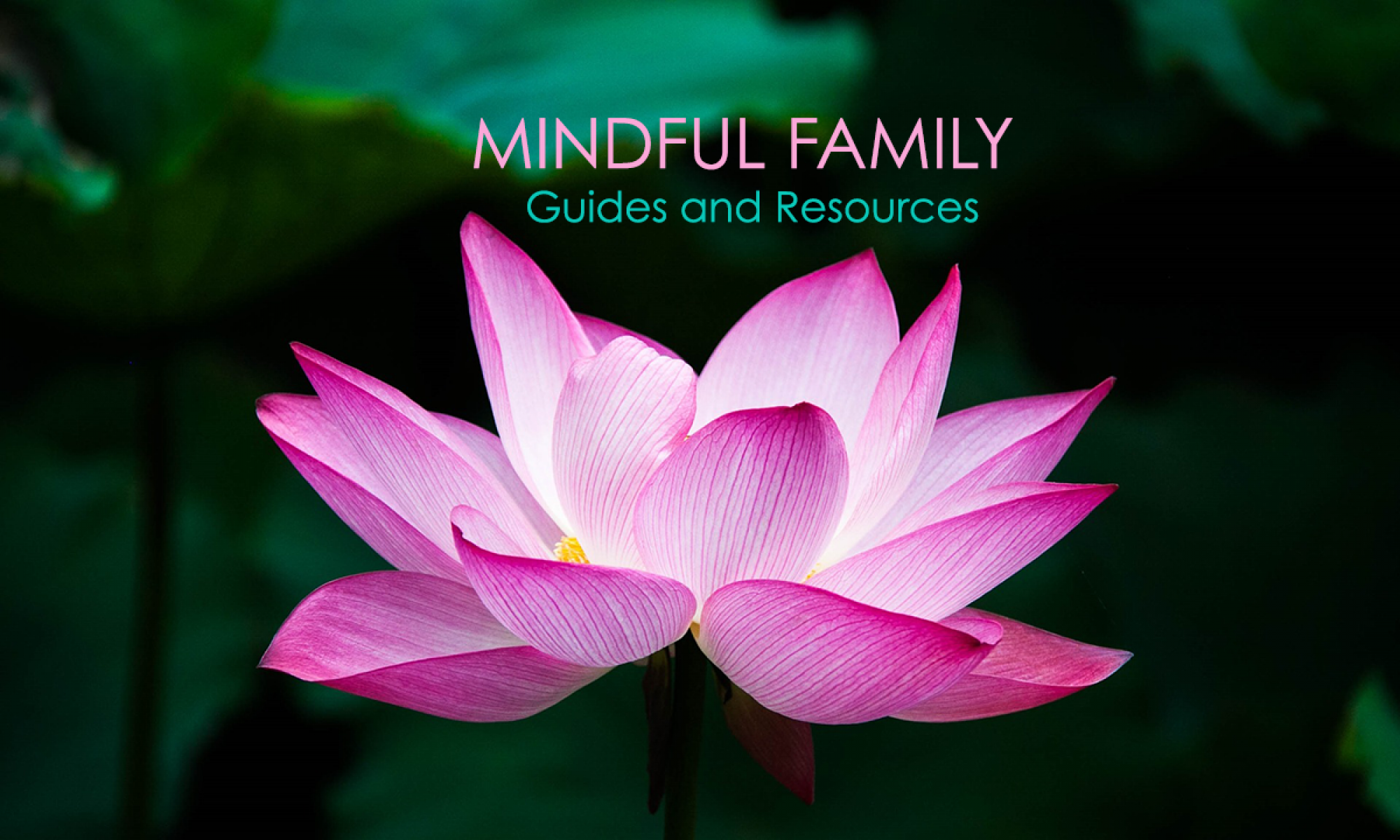By Noorshan Nanji
What is Mindfulness?

Mindfulness can be described as a heightened sense of awareness on the present moment, while acknowledging and accepting “one’s feelings, thoughts, and bodily sensations, used as a therapeutic technique” (Larkin, 2015, pgh. 4). It occurs when we shift our focus to the present, and calmly acknowledge it without judgement (Murphy, n.d.). Being pregnant can bring about all sorts of unfamiliar feelings and sensations. Some changes we may be aware of and others are quietly occurring in the background. It is important to be in tune with ourselves when these changes occur, so they can be addressed appropriately. Below, we will discuss the many benefits of practicing mindfulness while pregnant, including the physiological, mental, and emotional benefits. We will also look into why and how practicing mindfulness can support prenatal well-being. Lastly, we have included two mindfulness exercises for you to try at home with a helpful video to help guide you and we have provided five additional resources that you and your partner may find beneficial as you move forward through a healthy and mindful pregnancy.
Benefits of Mindfulness during Pregnancy
Pregnancy can be uncomfortable, and it is not uncommon for new Moms to fear the pain of labour and delivery (Bonura, 2018; Fraga, 2017; Murphy, n.d.). Luckily practicing mindfulness has many physiological, mental, and emotional benefits. Mindfulness has been shown to help with insomnia, assist with weight loss, and help reduce chronic pain (Fraga, 2017; Murphy, n.d.). In one recent study, pregnant women were randomly assigned to either a mindful childbirth workshop or a traditional childbirth class. Results showed that the participants that attended the mindful childbirth workshop felt better prepared for childbirth and were less likely to turn to opioid pain medication during labour (Fraga, 2017). Remaining present and responding to the labour experience by utilizing mindfulness techniques can help the woman endure her physical and emotional suffering (Fraga, 2017). Mindfulness has also been shown to help with postnatal recovery (Bonura, 2018).

Practicing mindfulness also has several mental and emotional benefits. It can help you feel more connected to your pregnancy experience, reduce feelings of stress and anxiety, and help you feel more positive (Dhillon, Sparkes, Duarte, 2017; Newman, 2016; Murphy, n.d.). Participants from the study mentioned above were interviewed again after giving birth and those that attended the mindful childbirth workshop had lower scores of prenatal and postpartum depression symptoms (Fraga, 2017; Dhillon et al., 2017; Mindful Staff, 2014).
How Being Mindful Can Support Prenatal Well-Being
Maternal stress is linked with poor outcomes in the baby, including “preterm birth, low birth weight, miscarriages, lower Apgar scores, smaller infant head circumference, and postpartum depression” (Frazer & Stathas, 2015, page 77). Research has found that in addition to providing benefits to women while they are pregnant, practicing mindfulness and lowered levels of anxiety have been found to have a positive effect on babies after they are born (van den Heuvel, Johannes, Henrichs, & Van den Bergh, 2015; Matvienko-Sikar, Lee, Murphy, & Murphy, 2016). Benefits include preventing premature birth and promoting healthy development thus leading to fewer developmental problems (Newman, 2016; Murphy, n.d.).
How to Have a Mindful Pregnancy
Are you ready to have a mindful pregnancy? It’s important to remember to not make this a competition and to start small (Murphy, n.d.). Practicing mindfulness can be achieved in whichever manner that works for you. What works for one person may not work for another and there is nothing wrong with that. As long as you are focused on the present moment and are accepting things as they are, mindfulness can be practiced through yoga, listening to music, through seated or walking meditation, or through an informal means, such as mindful eating (Fraga, 2017).
Below are some mindfulness tips and exercises to help you get started as you embark on your journey of having a mindful pregnancy. There is also a video to help guide you in practicing mindfulness at any time and in any place. You may want to utilize all of them, or just try one at a time. Ensure you are only practicing what you are comfortable with.

- Become aware of your emotional and physical needs by staying present in the moment. It’s okay to say “no” to social events and other offers when there is too much on your plate (Douglas, n.d.; Jonkman, n.d.). Ensure that you are caring for your physical well-being by engaging in some form of exercise, such as yoga or walking.
- Be kind to yourself! Practice self-compassion and do something each day for yourself, whether it be a bath or an indulgence (Douglas, n.d.).
- Slow down and acknowledge that things may not always go according to plan (Mindful Staff, 2014). Take breaks and celebrate small achievements (Jonkman, n.d.).
- Spend a few minutes each day in silent reflection to connect with your baby. Acknowledge and appreciate the miracle that is occurring in your body and express gratitude for all that you are able to do (O’ Leary, Dockray, & Hammond, 2016; Douglas, n.d.; Jonkman, n.d.).
- Remain open-minded to learning and adapting (Douglas, n.d.). It is important to let go of any preconceptions and accept things as they come (Larkin, 2015). Don’t feel afraid to reach out to other women who have been on this journey before you or seek the help and advice of a healthcare professional if you are feeling anxious, stressed, or uneasy.
- Lastly, let your mindful practices adapt with your baby and do what works for both of you (Mindful Staff, 2014). What may have worked during pregnancy may no longer be feasible. Part of practicing mindfulness is accepting what is and growing positively.
Try this Mindful Breathing Video
Video created by Noorshan Nanji
1:39 mins, November 2018
Mindful Pregnancy Resources
Mind the Bump

Mind the Bump is a free mindfulness meditation app that expectant mothers and couples can use as they prepare to start their new family. This free app provides mental and emotional support and offers education on both adult and child
brain development. The app provides guidance from the first day of pregnancy until 24 months after giving birth. Additionally, the app was created by psychiatrists and psychologists who specialize in mindfulness and perinatal health. These healthcare professionals also have knowledge on how to deliver health related content online. This is a great resource as it can be accessed at anytime and anywhere.
URL: https://www.mindthebump.org.au
Fit 4 Two Prenatal Yoga

This link provides information on where pregnant mothers can find prenatal classes to attend in the Lower Mainland of British Columbia. Yoga is an excellent exercise for pregnant mothers as it incorporates mindfulness, relaxation techniques, and strength-building exercise to prepare for labour and delivery. Additionally, the benefits of exercise are plentiful for both physiological and mental well-being.
URL: http://www.fit4two.ca/classes/prenatal-yoga
A Food Guide for Pregnant Women

This resource provides information for pregnant women about what to eat and what not to eat. During the crucial period of development, expectant mothers should be mindful of what they are consuming and ensure that they are receiving all the nutrients they need to achieve optimal health for themselves and their baby. Certain foods may need to be avoided during pregnancy and others may need to be consumed in greater quantities. This Food Guide will answer all questions and more, and directs you to additional resources if further inquires arise.
URL: https://www.parents.com/pregnancy/my-body/nutrition/a-food-guide-for-pregnant-women/
Breathing Space Counselling

Breathing Space Counseling was founded in 2016 by two registered therapeutic counselors. It provides private counseling, couples counseling, a counselling support group for mothers, and professional development for counselors. The values of Breathing Space Counseling include inclusion, compassionate acceptance, realness, trust, freedom, accountability, and fun. This is the perfect space for moms and couples to unwind and momentarily let go of any responsibilities and just focus on themselves in a safe and supportive environment.
URL: http://breathingspacecounselling.ca/
Dancing Star Birth

Dancing Star Birth is a handy one-stop link that directs you to several Vancouver-based resources. Here, you can find information to guide you through pregnancy, birth, and the postpartum period. Some of the resources this site has gathered directs you to prenatal yoga classes, midwives, doulas, acupuncture, chiropractors, where to find postpartum support, information on art therapy, information on natural health care services, and support for new fathers. Whatever you are looking for, Dancing Star Birth is sure to have it!
URL: https://dancingstarbirth.ca/resources/
References
Bonura, K. B. (2018). Just Breathe: Mindfulness as Pain Management in Pregnancy. International Journal of Childbirth Education, 33(1), 6–9.
Dhillon, A., Sparkes, E., & Duarte, R. V. (2017). Mindfulness-Based Interventions During Pregnancy: a Systematic Review and Meta-analysis. Mindfulness, 8(6), 1421-1437.
Douglas, A. (n.d.). Practicing Mindfulness During Pregnancy and Early Motherhood. Having-A-Baby.Com. Retrieved from http://having-a-baby.com/practicing-mindfulness-during-pregnancy-and-early-motherhood/
Fraga, J. (2017). The Benefits of a Mindful Pregnancy. The New York Times. Retrieved from https://www.nytimes.com/2017/05/31/well/family/the-benefits-of-a-mindful-pregnancy.html
Frazer, C., & Stathas, S. A. (2015). Mindfulness: Being Present in the Moment. International Journal of Childbirth Education, 30(2), 77–83.
Health Foundations Birth Centre. (2013). 15 reasons to do yoga in pregnancy [Photograph]. Retrieved from https://www.health-foundations.com/blog/2013/11/04/15-reasons-to-do-yoga-in-pregnancy
Jonkman, A. (n.d.). How I used mindfulness during my difficult pregnancy. Headspace. Retrieved from https://www.headspace.com/blog/2017/02/25/difficult-pregnancy-mindfulness/
Larkin, B. (2015). WTF is Mindfulness, Really? Greatist. Retrieved from https://greatist.com/grow/what-is-mindfulness
Matvienko-Sikar, K., Lee, L., Murphy, G., & Murphy, L. (2016). The effects of mindfulness interventions on prenatal well-being: A systematic review. Psychology & Health, 31(12), 1415–1434. https://doi.org/10.1080/08870446.2016.1220557
Mindful Staff. (2014). Mindful Pregnancy. Mindful.org Retrieved from https://www.mindful.org/mindful-pregnancy/
Morrell, S. (2016). How mindfulness can help during pregnancy [Photograph]. Retrieved from http://maven46.com/lifestyle/2016/11/mindfulness-can-help-pregnancy/
Murphy, C. (n.d.). How to Have a More Mindful Pregnancy. Parents Magazine. Retrieved from https://www.parents.com/pregnancy/my-life/emotions/how-to-have-a-more-mindful-pregnancy/
Newman, K. (2016). Four Reasons to Practice Mindfulness during Pregnancy. Greater Good Magazine. Retrieved from https://greatergood.berkeley.edu/article/item/four_reasons_to_practice_mindfulness_during_pregnancy
O’ Leary, K., Dockray, S., & Hammond, S. (2016). Positive prenatal well-being: conceptualizing and measuring mindfulness and gratitude in pregnancy. Archives of Women’s Mental Health, 19(4), 665–673. https://doi.org/10.1007/s00737-016-0620-x
van den Heuvel, M. I., Johannes, M. A., Henrichs, J., & Van den Bergh, B. R. H. (2015). Maternal mindfulness during pregnancy and infant socio-emotional development and temperament: the mediating role of maternal anxiety. Early Human Development, 91(2), 103–108. https://doi-org.ezproxy.kpu.ca:2443/10.1016/j.earlhumdev.2014.12.003
Yoga Shack BC. (2015). Prenatal [Photograph]. Retrieved from http://www.yogashackbc.com/index.php/events/prenatal/

